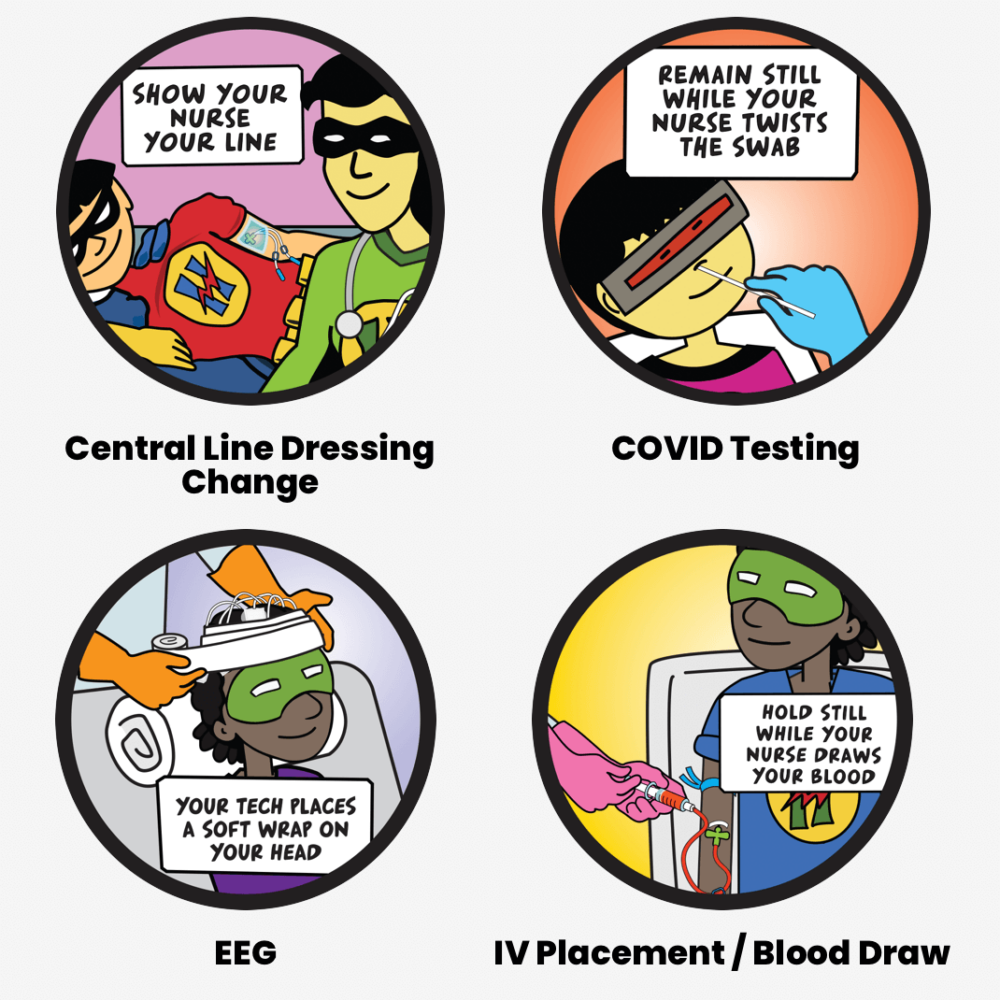
Imagine being a little kid and facing not only serious illness, but all the uncomfortable, scary treatments associated with hospitalization: blood draws, IV placements, and scans. Then you find out that you can earn prizes for every medical procedure you go through, thanks to an incentive program called Super Rewards for Super Kids. Kids love it and so do parents and clinicians who report improved medical adherence and a vastly better patient experience.
Super Rewards for Super Kids is currently administered by child life specialists in 40 hospitals in the U.S. and covers 17 medical procedures, such as CT scans, blood draws, EEGs, lumbar punctures, NG tubes, PICC line placements, sutures, and more.
It is based on behavioral economics, but also one family’s experience. Laurie Strongin and Allen Goldberg’s son Henry was diagnosed as a newborn with Fanconi anemia, a life-threatening rare disease. By the time he was 4 years old he had endured radiation, chemotherapy, and a series of frightening infections. But Laurie and Allen found ways to make the best of every day for Henry and his brother Jack, no matter where they found themselves. They came up with the idea of a Magic Closet that appeared in every one of Henry’s hospital rooms. When he faced a challenge, like the multiple attempts it took to insert a needle into a bruised vein, a Pokémon toy or a Batman figurine would appear.
As Laurie writes in her book, Saving Henry:
This short-term solution became a way of life. It was our way of acknowledging the hardship and trying, in the smallest way, to compensate Henry and Jack for it, one challenge at a time, and to provide incentives to keep going. Call it war reparations. Call it positive reinforcement.
Whatever.
Months later I would receive a call from a woman named Rachel Grossman, whose son Jacob was scheduled to have a bone-marrow transplant at the same hospital, asking for advice. When I finished explaining what to expect, where to live, where to eat, and what to ask the doctors, Henry asked to speak with her. He provided what he thought was the most essential advice on bone-marrow transplants, and that was to ensure that they got a room with a Magic Closet.
Despite heroic efforts and pathbreaking science, Henry died in 2002. But his memory lives on in the work of the Hope for Henry Foundation, which Laurie and Allen founded in 2003 to bring joy to the lives of hospitalized kids. They recently served their 130,000th patient.
To read more stories of problem-solving, innovative caregivers like Laurie and Allen, check out my book, Rebel Health: A Field Guide to the Patient-Led Revolution in Medical Care.
Note: This is a crosspost from my LinkedIn newsletter. If you subscribe to both, apologies for the double email today and thank you!
Leave a Reply